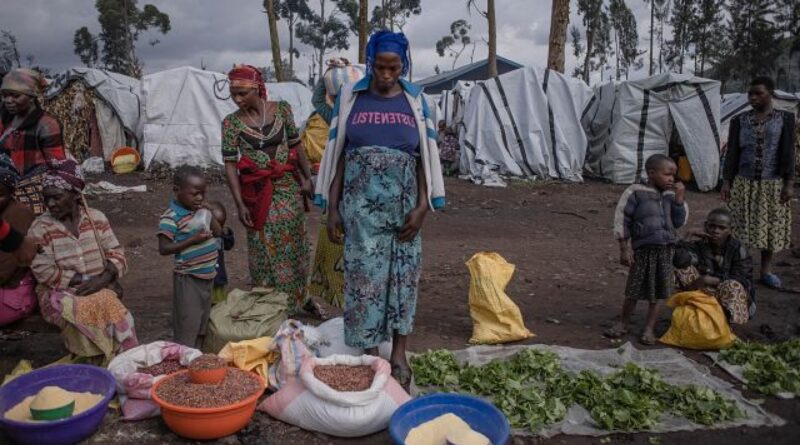As DR Congo gears up for elections, displaced persons in conflict-torn east feel abandoned
Dani Rukara is one of the nearly seven million Congolese who have been displaced within Africa’s second largest country.
According to the United Nations,this is the highest number yet recorded in the country.
If the campaign for general elections is in full swing in other regions of the Democratic Republic of Congo, in this camp in Kanyaruchinya, in the North Kivu province, placards serve as reminder of the December 20 general elections.
The displacement camps near the city of Goma stand as a testament to Felix Tshisekedi’s struggle to solve insecurity.
“Over the past five years, the president has made a lot of promises. Some of them have been fulfilled, but others have not,” Rukara says.
“Now we hope that the new president who is elected will be able to put an end to this war, which is becoming unbearable, because our wish is to return to our villages.”
The man fled his home of Rutsuchuru some 60 km north of Kanyaruchinya where M23 rebels are active. Voting will not take place there nor in Masisi territory.
Right to vote
President Felix Tshisekedi, 60, who is running for re-election, has promised to tackle rampant insecurity.
“As long as I haven’t solved the problem of security, I won’t have succeeded in my mandate,” he said on a 2021 visit to the east.
But after five years in power, the situation in eastern DRC has only grown worse.
Thousands of civilians have been killed and tens of thousands of women have been raped, according to figures from research groups and humanitarian organisations.
This forced disenfranchisement is painful to Deogracias Ntamuhanga.
“I have to vote, because I have the right to. And I have to vote for someone who deserves it. Because in other elections, we’ve elected people who don’t deserve it, and today we’re suffering from a lack of security.”
Esperance Nyiraneza is resigned: “I’m angry because I won’t be able to vote, but I’d like Tshisekedi, who is here, to be able to stay, because it’s thanks to him that we’re here, otherwise the M23 would already be here. And if it’s not him, whoever is elected should fight the M23 and force them to leave our villages so that we can return, because we’re not getting anywhere here. “
Rampant inflation is also hurting his popularity in the region.
Much of eastern DRC is prey to armed groups, a legacy of regional wars that flared in the 1990s and 2000s.
One of them, the M23, has seized swathes of territory since late 2021, driving more than a million people from their homes.
The DRC, several countries including the United States, and independent United Nations experts accuse Rwanda of backing the M23, a claim denied by Kigali.
Presidential candidates have hit the campaign trail in eastern DRC, pledging to bring peace to the region.
Doctors Without Borders says that tens of thousands of families are still fleeing violence in North Kivu.

